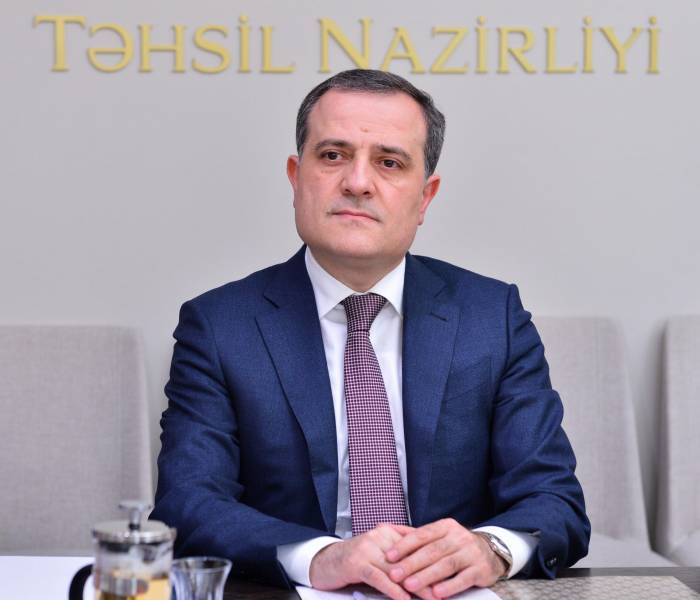The opening of communications [envisioned by the trilateral statement of November 10, 2020 signed between Azerbaijani, Russian and Armenian leaders following the 2020 second Karabakh war] will bring benefits to all countries in the region and will strengthen the role of the South Caucasus in international transport projects, Azerbaijani Foreign Minister Jeyhun Bayramov said on Oct.14 at a meeting of the Council of Foreign Ministers of the CIS countries in Belarusian Minsk, AzVision.az reports.
According to Bayramov, Azerbaijan attaches great importance to cooperation within the CIS, as well as further expansion and deepening of bilateral relations with all member countries of the organization.
He noted that the humanitarian sphere is one of the main areas of activity within the CIS, and the continuation of this cooperation will contribute to the further development of relations between the member countries and their peoples.
The minister also stressed the importance of cooperation between the CIS countries in the field of migration, including on a bilateral basis.
Besides, he reminded that as a result of the 44-day second Karabakh war [from late Sept. to early Nov.2020], Azerbaijan put end to the occupation of a part of its territories, which lasted for about 30 years, and thus ensured its territorial integrity.
Bayramov spoke about the issues arising from the trilateral statements of November 10, 2020 and January 11, 2021 [for opening all transport communications in the region], as well as the mine threat [in the liberated Azerbaijani territories] and its serious consequences.
He emphasized that the Azerbaijani side attaches great importance to peacekeeping efforts in the region, including the activities of the Joint Turkish-Russian Monitoring Center [operating in liberated Aghdam district].
The minister also informed the meeting participants about the destruction of the historical, religious and cultural heritage, the urbicide [meaning "violence against the city"] and the culturecide [deliberate destruction of cultural monuments] in the previously occupied Azerbaijani territories.
He stressed that currently the main goal is to restore the liberated territories and ensure the return of former internally displaced persons to their native lands.
In this regard, the minister informed the meeting participants about the ongoing restoration work in the liberated territories.
Despite all the difficulties, Azerbaijan is ready to normalize relations with Armenia on the basis of respect for the principles of international law, in particular sovereignty, territorial integrity and inviolability of the borders of states, Bayramov said.
Azerbaijan called for the start of the process of delimitation and demarcation of the border with Armenia in accordance with these principles, the minister said.
He also said that Azerbaijan is committed to fulfilling the obligations arising from trilateral statements, including agreements on the opening of all communications in the region.
Bayramov expressed confidence that the opening of communications will bring benefits to all countries of the region and strengthen the role of the South Caucasus in international transport projects.
Summing up the meeting, the ministers approved the "Decision on draft Action Plan for the Year of Folk Art and Cultural Heritage in the CIS in 2022" and "Decision on the draft Statement of Heads of CIS States on Development of Cooperation in the Field of Migration".
Following over a month of military action to liberate its territories from Armenian occupation from late Sept. to early Nov. 2020, Azerbaijan has pushed Armenia to sign the surrender document. A joint statement on the matter was made by the Azerbaijani president, Armenia's PM, and the president of Russia.
A complete ceasefire and a cessation of all hostilities in the zone of the Karabakh conflict were introduced on Nov. 10, 2020.
The conflict between the two South Caucasus countries began in 1988 when Armenia made territorial claims against Azerbaijan. As a result of the ensuing war, the Armenian Armed Forces occupied 20 percent of Azerbaijan, including the Karabakh region and seven surrounding districts. The 1994 ceasefire agreement was followed by peace negotiations.
Following the liberation of its lands, Azerbaijan from Nov. 2020 started carrying out operations on clearing its lands from mines, booby traps, and various weapons left behind by the Armenian troops.
More about:
















































